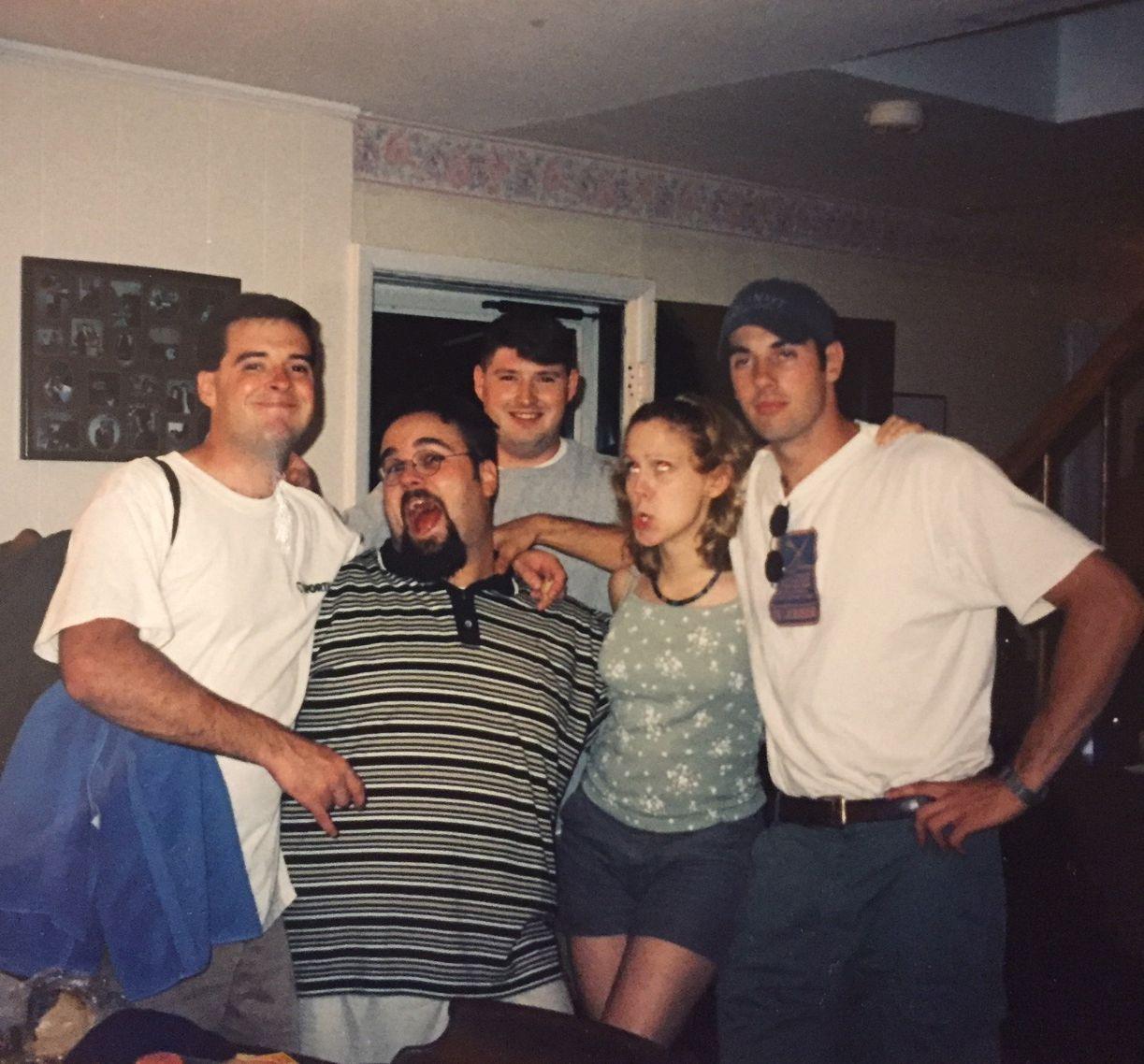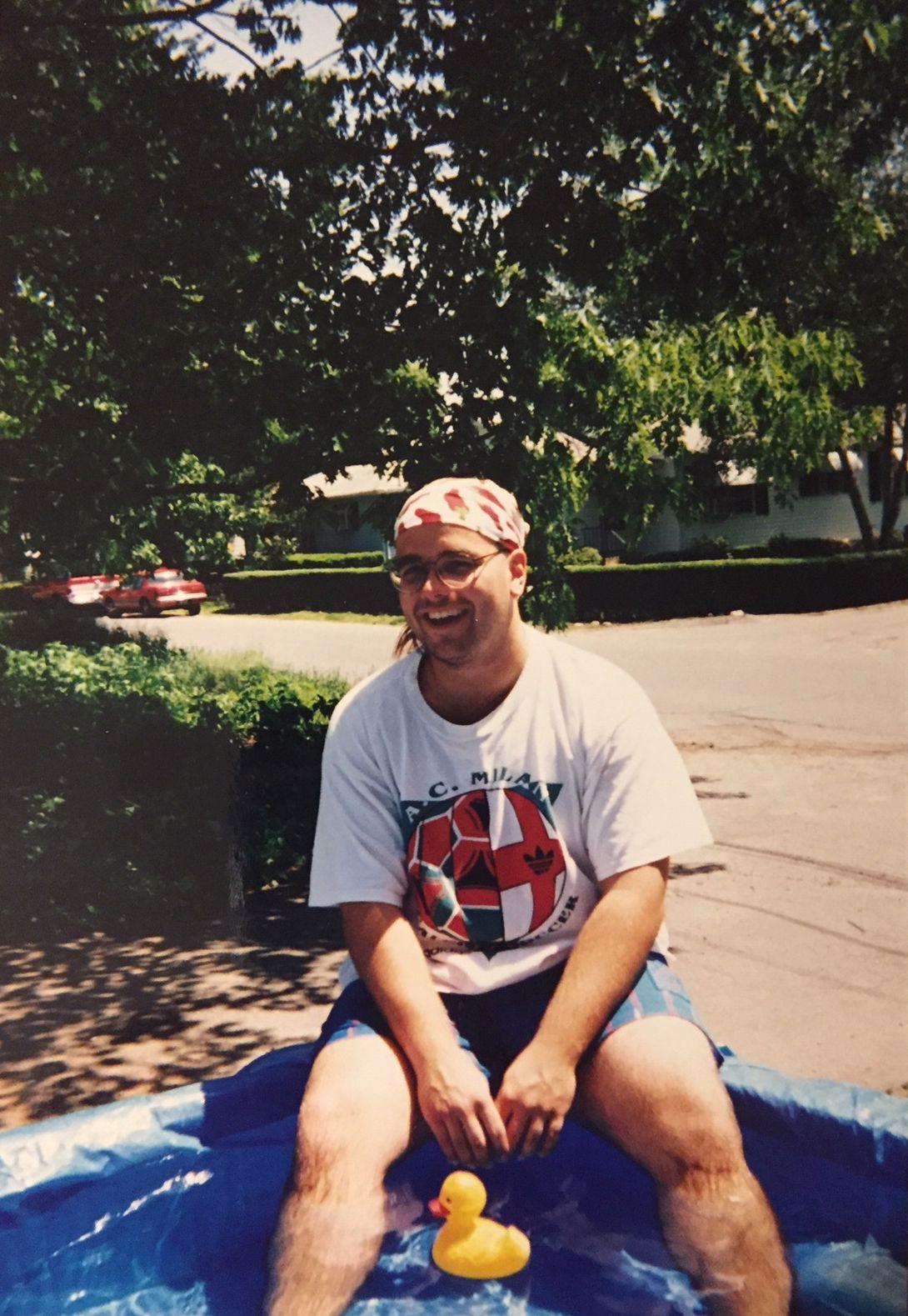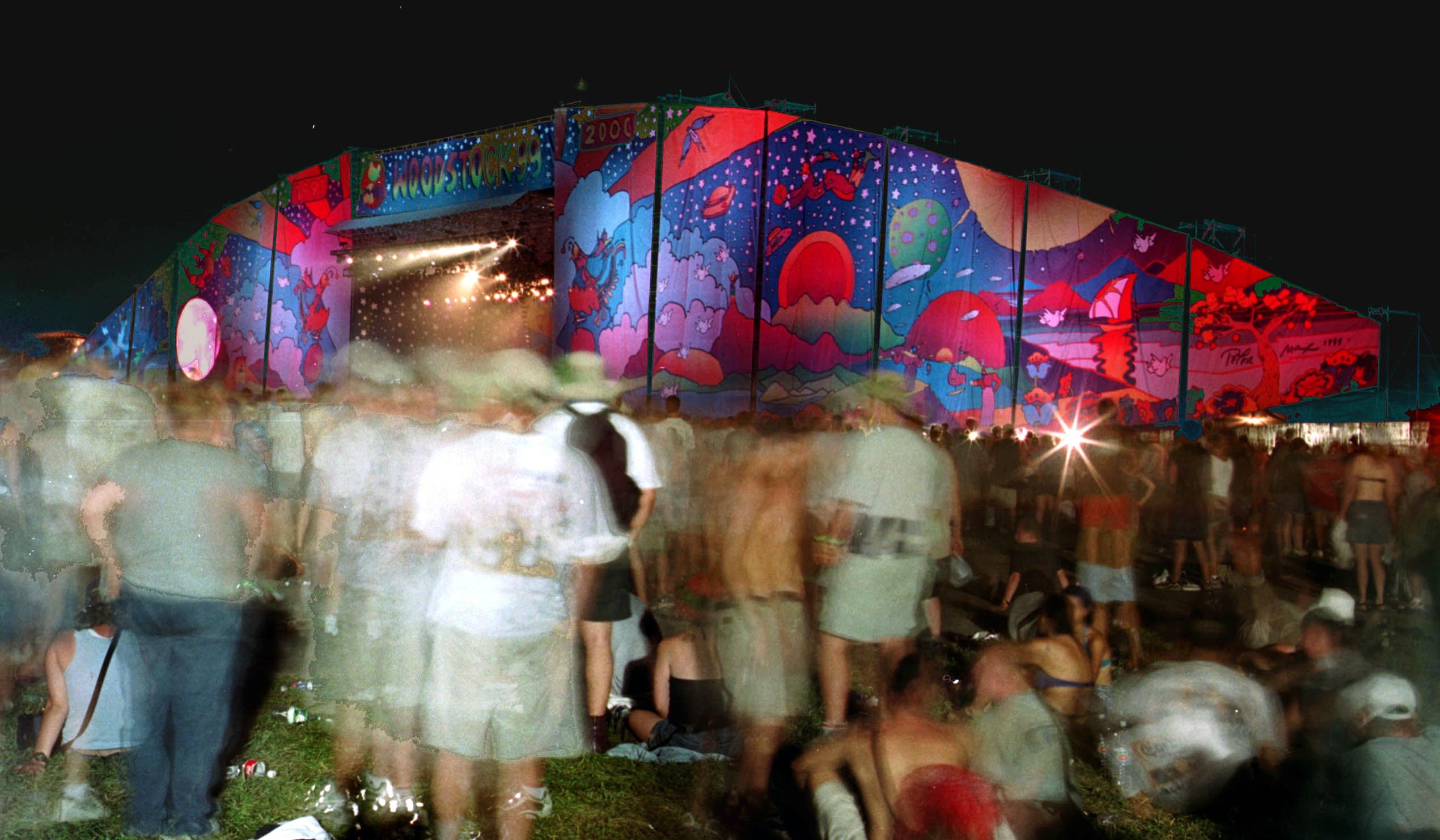The Human Toll of Woodstock ’99
Episode 5 of ‘Break Stuff’ looks at one family that was shattered as a result of the ill-fated festivalEditor’s note, September 10, 2024: This piece was originally published on August 6, 2019, when the fifth episode of Break Stuff: The Story of Woodstock ’99 was released. To mark the recent 25th anniversary of the festival, The Ringer is resurfacing Break Stuff on its own dedicated Spotify feed.
In 1999, a music festival in upstate New York became a social experiment. There were riots, looting, and numerous assaults, all set to a soundtrack of the era’s most aggressive rock bands. Incredibly, this was the third iteration of Woodstock, a festival originally known for peace, love, and hippie idealism. But Woodstock ’99 revealed some hard truths behind the myths of the 1960s and the danger that nostalgia can engender.
Break Stuff, an eight-part documentary podcast series now available on Spotify, investigates what went wrong at Woodstock ’99 and the legacy of the event as host Steven Hyden interviews promoters, attendees, journalists, and musicians. We’ve already explored whether Limp Bizkit were to blame for the chaos, how the story of the original Woodstock is mostly a myth, how the host town prepared for the festival, and how the first night of Woodstock ’99 set the stage for what was to come. In this episode, we’ll look at the human toll of the 1999 festival.
Below is an excerpt from the fifth episode of Break Stuff. Find the series here, and check back each Tuesday and Thursday through September 19 for new episodes.
Lorelei Johnson had a hunch.
It was Thursday, July 22, 1999. Her son, a 24-year-old man named David DeRosia, was leaving late that night for Woodstock ’99 from their hometown of Waterbury, Connecticut. David’s plan was to drive through the night with his friends. They wanted to get to Rome, New York, in time for the festival’s first official day on Friday.
Lorelei had to work at her job that night. But she felt a strong impulse to leave her shift early and see her son off.
“Something told me to go home,” she says. “Something told me, you know, take a couple hours, go home, and see him off. And I’m just so happy that I did that I was able to hug him and kiss him and give him the normal lectures. You know, ‘Behave, don’t get in trouble. Don’t do this. Don’t do that.’”
David couldn’t wait to get to Woodstock ’99. In his friend group, he was known as the resident music fanatic––the first to get into Nine Inch Nails, the one who introduced everybody to Korn, the guy who was always in charge of the car stereo. For David DeRosia, Woodstock ’99 was a chance to see some of his favorite bands. He was especially excited to see the big Saturday night headliner: Metallica.
That summer, David DeRosia convinced his best friend, David Vadnais; Vadnais’s two brothers, Rob and Bryan; and Bryan’s girlfriend to join him Woodstock ’99.
“I was actually the last one out of the five of us to jump in,” Vadnais says. “But he had already had my brothers in. Everybody was fired up to go, and I’d just graduated that May. So once I got my money for graduation I didn’t really have much of an excuse that I didn’t have the money for the ticket.”
DeRosia always had a way of talking his friends into new adventures. Like the time DeRosia convinced Vadnais’s younger brother, Bryan, on a whim to drive four hours to New Hampshire.
Their mission? Find a vending machine that sold French fries.
“And they would just come back and they would talk about this great adventure where they just drove for four hours and found a vending machine in the Northeast that had French fries and they bought ’em,” Vadnais says. “And you’re like, ‘Why in the world would anybody do this?’ But when they would tell the story you wanted to be part of it. You were sad that you missed it.”
If David was the ringleader, the Vadnais brothers acted as a second family for David.
Lorelei remembers them being an inseparable group.
“There was always some kind of goofing around and just being silly and that carried on until he was older and being with the Vadnais boys,” she says. “What keeps me going, too, is I love to look at the old photos of these guys. They were hysterical. I mean, they turned everything into a party, and they were just so much fun to be around.”

The DeRosia family shared some photos of David with me via their lawyer. David is either smiling or goofing off in every single one. He has dark hair and a goatee, and wears round glasses. He stands about 5-foot-9 and weighs around 340 pounds. But what you notice most is that smile. He radiates an inherent kindness, the kind of feeling you hope you get from a neighbor or coworker.
At home, David was a caregiver for his mother. Lorelei suffers from a long list of illnesses, including brain lesions that mimic the symptoms of MS.
These illnesses affected her movement and even caused intermittent blindness. Her health was so poor that she might have had to live at an assisted living facility. But David wouldn’t hear of it. He left Florida, where he attended school, and moved in with Lorelei.
“If I needed help doing anything, he would help me,” Lorelei says. “He would help me do things in the yard. He would take me to doctors appointments. He is just an amazing kid.”
For a young man, David DeRosia already had a lot of adult responsibilities. But Woodstock ’99 was going to be a reprieve from that. A chance to cut loose and have fun.
Lorelei felt that he deserved it. But still, she worried. That’s what mothers do, after all. Lorelei couldn’t help but tell her son to be careful when she sent him off to the festival.
“He did his little giggle and laugh and, ‘Not to worry, not to worry, Mom,’” she recalled. “And then his last words out the door were ‘You worry too much, Mom. I’ll be all right.’ I think about that now and that really breaks my heart. But at least I got to hug and kiss him before he left. I have no regrets. No regrets.”
The next time Lorelei Johnson saw her son, he was in a coma.
It was Sunday, Woodstock ’99’s final day. But by then, David was more than 40 miles away from the festival. Earlier that morning, DeRosia had been airlifted out of Woodstock ‘99 and taken to a hospital in Syracuse. Lorelei heard the news from local police, who knocked on her door at around 4 in the morning.
“You don’t know the horror of having someone knock at your door at that time in the morning, because you know it’s not going to be good,” she says. “And it’s a good five-hour drive to get up to Syracuse. And I prayed all the way, and I knew when I got there that this wasn’t gonna turn out the way I wanted.”
Here’s what is known for sure: David DeRosia was seen by his best friend, David Vadnais, in the mosh pit right as Metallica came on stage Saturday night. It was exactly where DeRosia wanted to be.
After that—things went horribly wrong.
Unlike many Woodstock attendees, no one in David DeRosia’s group binged on alcohol or took drugs. While campers in neighboring tents snuck in kegs of beer, DeRosia and his pals smuggled in bottles of Gatorade. The punishing heat swiftly turned them into warm sugar water.
“We were doing our best, or best you could with no shade, to stay functional,” Vadnais says. “You know, to stay hydrated, to stay safe from anything that was going to ruin the trip. You know, you don’t want to be the guy the next day that’s like, ‘I can’t get out of bed because I’m whipped from day one.’
“We were buying water that we felt we needed to have when we needed to have it. And part of that, even on day two, was because the Gatorades we brought in weren’t really––you know, drinking hot Gatorade is probably one of the worst things you could do. It’s not good. So I’d rather drink cold whatever-priced water than hot Gatorade if I had to. So we definitely were doing what we felt appropriate to stay hydrated for sure.”
Vadnais estimates that each member of his group spent between $60 and $80 on water in just two days. But they didn’t complain. This was, after all, another adventure conceived by their affable ringleader, David DeRosia. No matter the hardships, they would find a way to make Woodstock ’99 a fun rite of passage.

“You’re thinking, this is the camping trip from hell,” Vadnais says. “You’re so hot and you’re so uncomfortable and it’s difficult to sleep. But at the same time, you’re together, you know, and you’re kind of bonding over a bit of misery. But you’re still seeing these bands that you wanted to see, and you’re going through it together. The stupid little things that you have on rough camping trips like, ‘I didn’t sleep, there’s a rock on my back’––you’re laughing about it and you’re laughing at each other through the tents going to sleep at night. “
This go-with-the-flow spirit also comes across when you read David DeRosia’s own words. As Woodstock ’99 unfolded, David kept a handwritten journal in a small notebook. David’s family allowed me to read five photocopied pages from this journal. At the top of the first page, Lorelei wrote a note apologizing for her son’s chicken-scratch handwriting.
David’s journal is like a slice of life of what it must have been like for many young campers at Woodstock ’99. There’s some griping about the rough conditions, but for the most part he seems to be in good spirits.
In an entry dated Friday, July 23, at 1:20 p.m., David writes: “Tragedy struck. Bryan’s watch has gone missing—he thinks it’s been stolen.” Then he adds: “Outlook for shower—still not great. Going to try and catch some Z’s.”
Later on Friday, he writes some mini-reviews of the bands he’s seen. “Add Live to the bands seen (very good) and Jamiroquai (not good).” He was more enthusiastic about that night’s headliners: “Caught the tail end of the Offspring, all of Korn, then most of Bush. All three rocked.”
Then he shares his goal for Saturday in all-capital letters. “Get on the Woodstock video by being in the Metallica pit. Rock on!!”
“Dave’s big plan was Saturday night,” Vadnais said. “His goal was to go to Rage Against the Machine and go to Metallica. And he wanted to get as close to the stage as humanly possible for Metallica. You know, you’re almost planning for your ‘push for the summit’ to kind of make a pun. You wanted to save your energy, you wanted to be ready for that, because this was it, this was the big one.”
For much of Saturday, David DeRosia paced himself. In his journal, he writes about taking his first shower of the weekend—rather than use the thoroughly disgusting campground showers, he poured bottled water over himself.
During the day, David saw several bands—he liked Kid Rock and the Tragically Hip. He had mixed feelings about Counting Crows. And he scoffed at Wyclef Jean’s comically terrible Jimi Hendrix impression.
When David needed a break, he headed back to the campground. He didn’t want to burn himself out before that night’s Metallica set.
As far as David Vadnais could tell, his friend seemed like his normal self.
“We’d go see a show, and then we’d go back to the tent,” Vadnais says. “Then that night, I don’t remember exactly what time, my brothers and the girl we were with decided to go into town because they wanted to get some more supplies. And Dave and I just hung around the tents and just kind of you know B.S.’d and whatever, and we were getting ready for the show and trying to to rest.”
In his final journal entry, at 6:52 p.m. on Saturday July 24, DeRosia concludes with this: “Now to build up strength, because I’m going to the pit.”
Host: Steven Hyden
Producers: Noah Malale, Isaac Lee, Bobby Wagner, Jonathan Hirsch, Catherine St. Louis, Kara Kornhaber, Karan Nevatia, Betty Márquez Rosales, and Vikram Patel
Composition and Sound Design: Steve LaRosa and Joseph Fridman
Find the series here: Spotify
